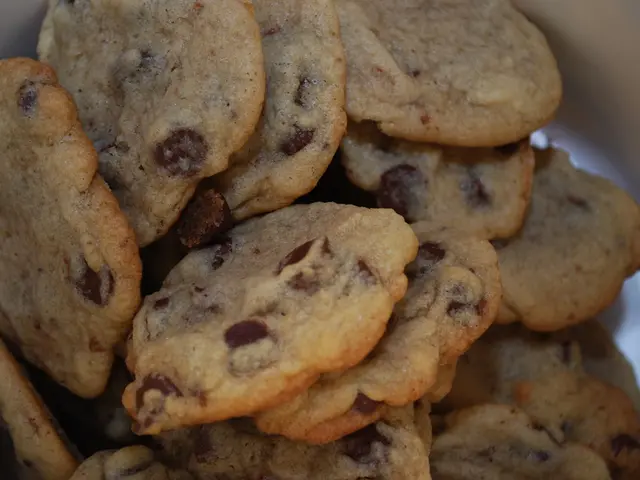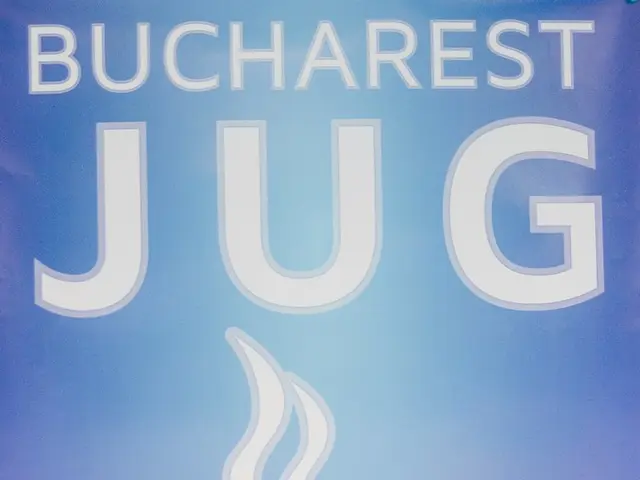Kitchen Table Therapy: A Gastronomic Sojourn for Grieving Widowers
Cooking class bolsters widows' resilience with a sprinkle of salt and a heartful of spirit - Empowering widows through culinary prowess: Emotional strength found in cooking workshops for the bereaved women
Every now and then, a shared meal becomes the backdrop for more than good company and delicious food—it becomes the launchpad for healing a soul. At least, that's the story for a select group of widowers gathering in Ludwigshafen's communal kitchen each month. Gathered under the banner of a special cooking class for the grief-stricken, these men have more in common than their love for cooking. They have lost their spouses, the irreplaceable heartbeat of their homes.
These aren't just cooking classes; they are culinary havens where memories are shared, laughter is revived, and the chasm of emptiness left by the loss of a spouse is faced head-on. From learning to cook basic dishes to creating a new life after loss, these classes provide a space for these men to build a new narrative for themselves, one replete with shared experiences and hopeful endeavors.
The Room Where Defenses are Lowered
Officially designated "Taste Life Again: A Cooking Class for Grieving Men," the interaction transcends mere kitchen tricks. Here, these men wrestle with the silence that sets in when a loved one departs, seeking to piece back together a life that has been forever altered.
"I should have been there more often for my wife," remarks one of the widowers, adorning his little finger with his wife's wedding ring—not out of sentimentality but as a comforting reminder of her presence. Recalling his past, he places a lasagna in the oven, his first time ever cooking for himself. "She used to cook; I would just eat," he shares, a symmetry broken but rekindled in this shared kitchen.
Stories jumpstarted by "She always" and "We used to" reveal the reminders of their wives' absences—not intense pangs but accompanying echoes of a life once lived. They speak warmly, the pain not of fresh wounds but of distant scars, a testament to the passage of time.
"The evenings are the hardest when you're sitting alone at home," admits one. Another recounts the heart-wrenching task of sorting through his wife's belongings, piecing together his identity amidst the reminders of their shared past. The quiet crackle of oil sizzling in a pan cuts through the air, punctuating their stories with a sense of normality—a brief respite from the heartache. In the brief silence,one whispers, "That's what makes a difference sometimes." He means the warmth of nutmeg.
A Memorial Dinner Among Friends
That evening, the class learns how to make a Béchamel sauce to pair with the lasagna. One, Cooking Maestro Renate Ladwig's creation, another, the group's own. A man raises a brow, half-teasingly,"Who eats just one serving of lasagna?" an acknowledgment of the solitude that once marked their lives. Yet a dish made for six—or in this case, seven—is almost an emblem of a new life beckoning, a life that continues despite the loss.
The stove acts as the heart of this community, fostering an environment that supports one another in the face of loss. "We're not painting the Sistine Chapel here," shares Dietmar Breininger, the course leader hailing from grief counseling. "It's about taking the ingredients we have and making something out of them." An egg, a pinch of salt, a splash of courage—those are the ingredients needed to create connections, Breininger suggests.
In the past, they've prepared pancakes. "I'm no MasterChef," admits a man with a shy laugh. "But I can manage simple dishes—even if I am a man." The wry humor drew laughter from the class, a sign that connection was being fostered. Some have found the courage to open up quicker than others, sharing tales of their spouses, their youth, and sometimes, the silence that now haunts their homes. Collectively, they concoct a recipe for moving forward—a recipe no cookbook knows.
The Collaboration is Flourishing
"Half power on the heat," one chef's voice echoes through the kitchen, stirring memories for another. "A pinch of salt and black pepper," another chimes in, their laughter and camaraderie a testament to the healing power of shared experiences. The class has been thriving since March 2024, with six spots available—although there have been times they've welcomed seven or eight constituents, determined to keep the atmosphere intimate.
With a soft inquiry, Chef Ladwig asks one participant, "What did your wife like to cook?" The question sparks a flood of memories, transforming an ordinary recipe into a photo album of their shared past.
"I still revere my wife," one of the men reflects, "but I've also made new connections and have grandchildren now. I travel extensively, not so much for the freedom but as a form of distraction." Another nods, gazing at his lasagna with a contemplative expression. "Life doesn't taste so bitter when shared," he says, a sentiment echoed by his fellow grieving widowers.
In the end, they all lend a hand to clean up, a sense of closure that permeates the air. "It's important," one man reflects, "otherwise, so much remains unsaid." While the pots might have symbolized the remnants of their shared life, perhaps the real meaning lies in the conversations and connections forged within the kitchen's warm embrace.
- Grief management
- Sense of community
- Social support
- Cooking skills
- Widowers
- Shared experiences
- Emotional healing
Enrichment Data:While the specific details about a cooking class for grieving widows in Ludwigshafen are not available, it is well documented that cooking together can offer several therapeutic benefits. Here's a possible framework for how such a class might help support grieving widowers:
Cooking Class as a Sojourn for Grieving Widows
Social Support
- Building Emotional Connections: Cooking together fosters camaraderie, allowing participants to share their experiences and emotions while also enjoying one another's company.
- Encouraging Self-expression: The communal setting creates an atmosphere conducive for self-expression, allowing participants to find solace in discussing their shared grief and memorializing their loved ones.
Therapeutic Benefits
- Coping through Creativity: The act of cooking can provide a healthy outlet for grief, allowing participants to channel their emotions into a tangible creation.
- Shared Sense of Accomplishment: Collaborating on a meal together offers a sense of accomplishment, boosting self-esteem and promoting feelings of purpose.
Skill Building
- Developing Cooking Techniques: Learning new recipes and cooking skills builds self-sufficiency and confidence, providing participants with practical skills to help manage the daily aspects of their lives.
- Promoting Self-care: By focusing on something as nourishing as cooking, participants can engage in an act of self-care that allows for emotional processing and healing.
Potential for Specific Grief Support
- Guided Discussions: Integrating guided discussions or workshops within the cooking class framework could provide an opportunity for participants to share their stories and feelings in a supportive environment.
- Therapeutic Facilitation: Having a trained therapist or counselor facilitate these discussions could enhance the therapeutic benefits of the class, as grieving widows process their loss and work towards healing.
- The cooking class for grieving widowers in Ludwigshaffen serves as a platform for emotional healing, offering not just culinary skills, but also a sense of community and social support.
- The shared kitchen acts as a sanctuary where these grieving men learn not just new recipes, but also how to rekindle laughter, face their silence, and create a new narrative in the chasm left by loss.
- In this cooking class, bereavement and cooking intertwine, offering a therapeutic haven where grief management, self-expression, and creativity meet, fostering emotional connections and promoting healing through shared experiences.







